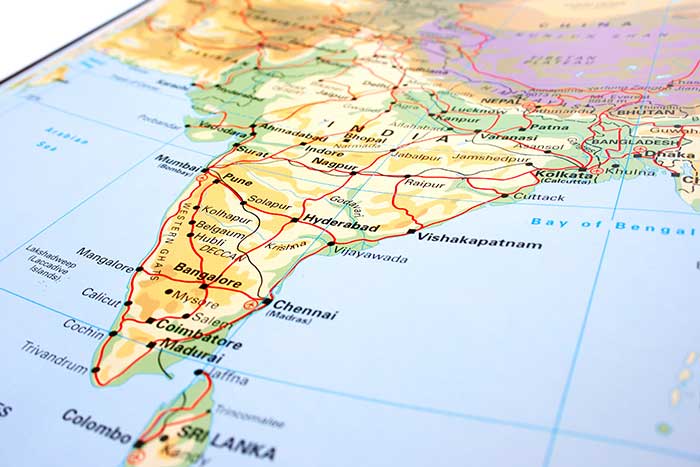web_indamap_istock_21291363_large.jpg

The Visakhapatnam-Chennai industrial corridor will extend from Kolkata, West Bengal, in India’s north east, to Tuticorin in Tamil Nadu, near the southern-most point of the country.
When complete, the Visakhapatnam-Chennai industrial corridor will extend from Kolkata, West Bengal, in India’s north east, to Tuticorin in Tamil Nadu, near the southern-most point of the country.
The ADB said it will connect four economic and nine industrial hubs. It will be the first industrial economic corridor along India’s cost, and will spur its development and create “seamless” trade links with other parts of South and Southeast Asia.
“By combining state-of-the-art industrial clusters, efficient transport and reliable water and power supplies with a skilled workforce and good business policies, we expect the corridor to become a favoured investment destination,” said Manoj Sharma, principal urban development specialist in the ADB’s South Asia Department.
“We estimate that by 2025, annual industrial output along the corridor will increase fourfold, to $64bn, from about $16bn in 2015 if investment opportunities are maximised over the coming 10 years.”
India’s government, keen to encourage manufacturing growth to facilitate industrial development in the country, hopes manufacturing will contribute 25% of GDP by 2022 – around the same level as in China, Malaysia and Vietnam.
Manufacturing currently provides around 15% of GDP in India, 12% of which takes place in the state of Andhra Pradesh – where the new corridor will be developed.
The corridor will include 183km of highways and roads, water treatment plants, 488km of drinking water pipes, 47km of storm drains, 10 power substations and 281km of power transmission and distribution lines.
ADB’s contribution, which will develop the first 800km section of the corridor, will be made up of $500m for key infrastructure and a $125m loan to support industrial policies and business promotion.
The Indian government will also provide $215m, while the Urban Climate Change Resilience Trust Fund will contribute a $5m grant and $1m worth of technical assistance.
The programme will also aim to increase women’s participation in the industrial workforce, and plans to train 25,000 male and female workers overall.












